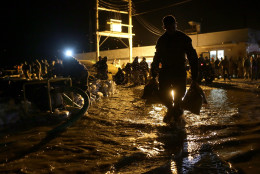Technology
-
Consultant Jesse Fewell will discuss agile software development from the perspective of the program manager, He'll discuss creative ways for federal workers to collaborate and how gaming can assist in generating software ideas. January 5, 2015
January 04, 2016 -
In 2016, the government will accelerate its move into the digital era. That's according to Mark Forman, who runs the public sector business for Unisys. He was the e-government director for the George W. Bush White House, back when online transactions with the public were just coming into the government. For our Federal Drive series, Looking ahead to 2016, Federal Drive with Tom Temin asked Forman, hasn't the government already transformed into something digital?
January 04, 2016 -
The Director of National Intelligence will soon ask agencies to use other sources when they review existing security clearance holders. Legislation slipped into the 2016 omnibus requires that agencies create an enhanced personnel security program. Federal News Radio reporter Nicole Ogrysko tells Federal Drive with Tom Temin about what she found and what else is hiding in the 2016 omnibus
January 04, 2016 -
The Federal Emergency Management Agency's Office of Inspector General warned the agency that not having a centralized IT system can result in delayed assistance during a disaster.
December 31, 2015 -
The Defense Department's advanced research agency is looking for technologies that fit third offset plans.
December 31, 2015 -
A DoD Inspector General report found the department's cloud policy may have monetary and cybersecurity risks.
December 30, 2015 -
Rob Coen is director of the NIH Information Technology Acquisition and Assessment Center, or NITAAC. He oversees two big governmentwide acquisition contracts that have proven popular over the years. Coen told Federal News Radio Executive Editor Jason Miller that existing contracts could easily meet your requirements and those of IT and cybersecurity reform. Those requirements were recently shared with Federal Drive with Tom Temin.
December 30, 2015 -
The federal government is all in when it comes to solar and other renewable forms of energy. Four agencies have banded together for a novel procurement to aggregate requirements for solar power. Timothy Unruh, director of the Federal Energy Management Program and Gerald Robinson, program manager in Building Technologies & Urban Systems Division at the Lawrence Berkeley National Laboratory, stopped by the Federal Drive with Tom Temin to explain how this plan will work.
December 30, 2015







